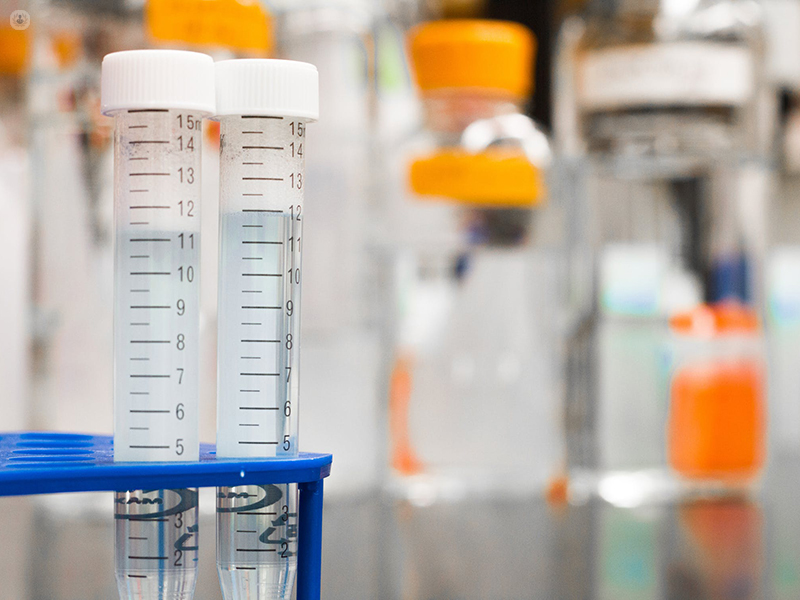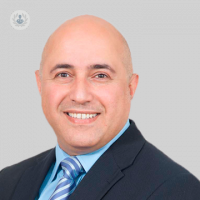Detecting prostate cancer with the PCA3 urine test
Escrito por:PCA3 is a urinary test that measures the concentration of the PCA3 molecules in the urine before and after a prostate exam. This test has to be done in conjunction with the mainstream investigation tests for prostate cancer, such as the PSA blood test, prostate MRI and biopsies.
The PCA3 urinary test is particularly useful in men who had one previously negative (after three months but before 7 years) prostate biopsy, to provide a guide on whether there is a need for a second biopsy as a result of a high-risk of underlying prostate cancer. Urologist Mr Aza Mohammed tells us more about the PCA3 test and how it compares to other tests in the detection of prostate cancer.

Is this test accurate?
There are a number of tests available for men with suspected prostate cancer. PCA3 has a niche in men with persistently elevated PSA levels but a previously negative prostate biopsy.
The most important benefit of having the PCA3 test is that it avoids the risks of a repeat biopsy when the risk for prostate cancer is low. However, this test has its limitations and it shouldn’t be performed in isolation of other tests. The test has a sensitivity range of 46.9 - 82.3%, and specificity range of 56.3 - 89%; meaning that there are cases where the score is low but there is a risk for prostate cancer and cases where the score is high but no cancer is identified.
What happens during the test?
The patient attends the urology outpatient department on the day of the test. Two urine tests will be taken; one before and one after a prostate massage. After the test, the samples are transferred to a special lab in Germany.
A score is calculated for the ratio of PCA3 concentration in the two samples using special laboratory techniques. In men with a previous negative prostate biopsy, a PCA3 score of less than 25 is associated with a decreased likelihood of prostate cancer and hence a repeat biopsy could be deferred.
On the other hand, if the score is equal or more than 25, there is an increased likelihood of prostate cancer and a repeat biopsy will be strongly advised. Due to the fact that the test needs special processing the results might take up to three months before they are available.
Where is this test available?
This test is currently not funded by the UK national health service, however, it is available privately in a number of hospitals including OSD Healthcare Hospital in Hemel Hempstead.
For more information regarding the PCA3 test and prostate cancer, please contact Mr Aza Mohammed via his Top Doctors profile.


